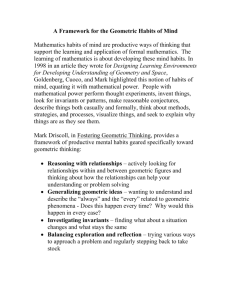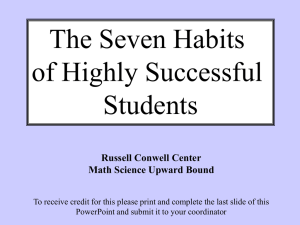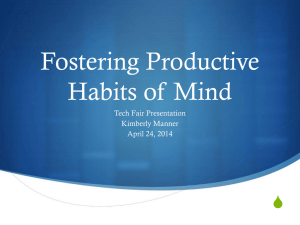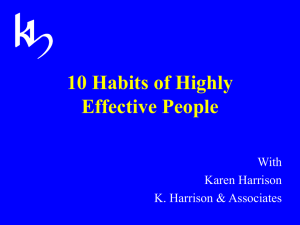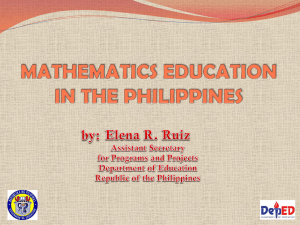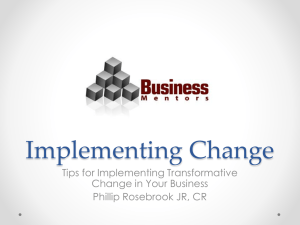Board Meeting Presentation Final
advertisement
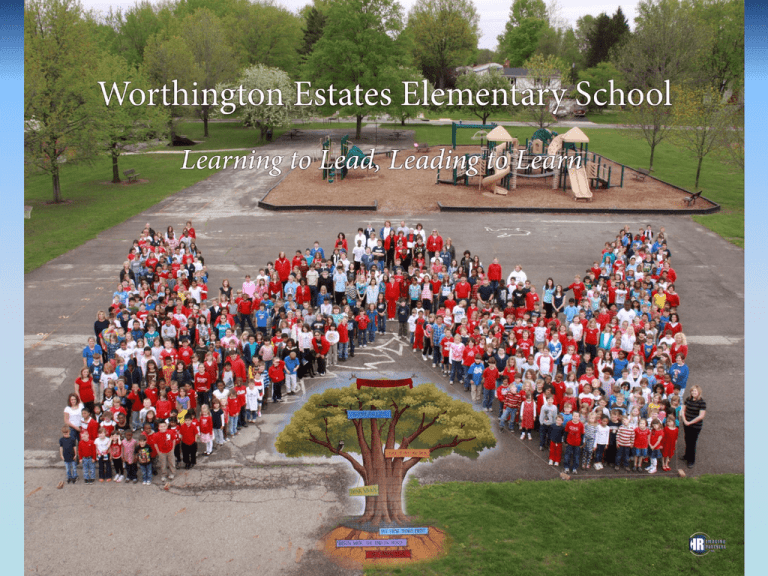
What is a “Habit Tree?” Introduction- 1st Grade Students “Habit song” One, be proactive, we’ll start with that, Two, begin with the end in mind. Three, put first things first, work then play, Four, think win-win every time! Five, Seek first to understand, then to be understood, Six, we’ll synergize together, Then we’ll sharpen the saw and we’re done! 1-2-3-4-5-6-7, our habit tree! Students track their progress Our Learning Connections are made between historical events and the 7 Habits. Students are all leaders in something! Mission Statements Each class writes their own mission statement at the beginning of the year. The next slide has Kindergarten and 4th grade students sharing their mission statements. Kindergarten and 4th Grade Mission Statements Data Notebook Pages: 1st Grade Reading Goal Form Students set a goal in reading, make a plan, and monitor results. A student shares her data notebook at a leadership event. Data Notebook Pages Math Fact Graph Students monitor and graph their own progress on a weekly fact test. 4th Grade “Target/Goal Sheet” Students set academic and behavioral goals. Then they make plans for accomplishing their goals. Baldrige Tools Students use baldrige tools to enhance their learning. Leadership in Related Arts Students also demonstrate the Habits in Related Arts Leadership in ELL ELL students showcase their work. Leadership in Special Education Students use the language of the 7 Habits when solving problems with friends. How has it impacted our students? The next slide shares how a middle school student is using the Habits. How the Habits Help a Former WES Student Our Community Students are part of their classroom community, building community, and school community. Click here to hear from our students! How has it impacted our parents? Parents were invited in to learn The Seven Habits so they can use the language at home with their children. The next slide shares the experiences of a few parents. What WES Parents Say About the 7 Habits Students make cookies to deliver to a nursing home. Students collect toys for families in need. Community Service Students help make our school beautiful by planting flowers. Students collect pop tabs for the Ronald McDonald House. Bringing the Community to WES Our students taught several OSU studentathletes about the 7 Habits. Making a Difference • Four areas in which we would expect to see improvement – Academic growth – Behavior – Student engagement – Culture/climate Academic Growth • Data Notebooks – One of the most effective Formative Instructional Practices is students taking ownership for their learning. In Data Notebooks, students track/graph their learning and set goals and can articulate their own strengths and areas for growth. – Prior to renewal - 0% of students tracked their learning in Data Notebooks – Now – 100% of our students track their learning and growth through Data Notebooks Academic Growth cont. • OAA Scores 3rd 4th 5th 6th Reading Mathematics Reading Mathematics Reading Mathematics Science Reading Mathematics 2009-2010 (Baseline Year) 81% 81% 98% 91.3% 89% 96% 91.9% 94% 88% 2010-2011 (Year 1) 88.3% 91.2% 88.2% 83.1% 95.9% 83% 85.7% 82.3% 90.6% 2011-2012 (Year 2) 87.5% 88.9% 87.7% 91.9% 87.3% 67.6% 77.1% 96.2% 98% Academic Growth cont. • Value-Added 4th 5th 6th Reading Mathematics Reading Mathematics Reading Mathematics 2009-2010 (Baseline Year) -0.9 4.0 -0.2 -0.1 -3.4 -13.4 2010-2011 (Year 1) 7.3 4.8 0.2 -5.3 -7.4 -9.1 2011-2012 (Year 2) 0.7 2.9 -1.6 -4.0 -0.8 5.1 Behavior Improvement 2011-2012 2012-2013 Suspension 8 7 Bullying 16 5 Behavior Referrals 89 61 Bus Referrals 43 32 Student Engagement and Climate/Culture • Evidence already presented – Common language – More leadership opportunities for students – Student expectations – Staff unity

